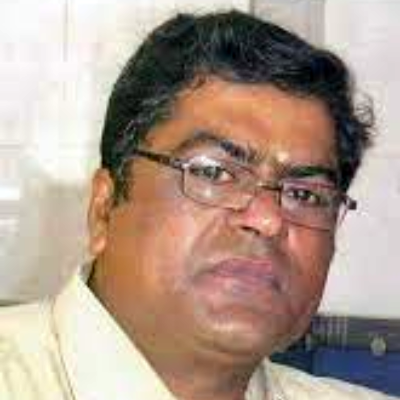
A. R. Dad
Introduction by Mehlab Nasir
Abdul Razak Dad better known as A. R. Dad, was born on 20 January 1971 in Gwadar, a coastal town in Balochistan, Pakistan, where he also received his primary and secondary education. His father was a sailor, and his mother a traditional healer. Dad spent most of his childhood with his grandmother in a village in Dasht, near Gwadar.
After his matriculation exam in Gwadar he went to Turbat town for further studies, as there was no boys’ college in Gwadar in those days. He took his intermediate exam at Government Degree College, Turbat in 1991–92. Thereafter he got his BA in Balochi, Political Science and Sociology, and an MA in Balochi from the University of Balochistan, Quetta, in 2001. Currently, after finishing his M.Phil., he is doing his Ph.D. in Balochi at University of Balochistan, Quetta, where he is also serving as a professor of Balochi. The topic of his thesis is Balochi fiction writing.
Dad served as a primary school teacher in different schools from 1994 to 2005. In 2005 he was appointed lecturer of Balochi at the University of Balochistan, Quetta.
Dad has also worked in FM Radio in Gwadar. He was inspired by listening to All India Radio and the BBC, and also used to write letters to them. He was a regular listener to Quetta Radio and was much influenced by Ghaws Bakhsh Saber, a Baloch newscast translator and writer.
Dad began his writing career when he was in 9th grade by writing letters and short humorous pieces for children’s magazines. In those days he wrote under the pen name Razzaq Arzu. Dad is still a prolific contributor to Balochi magazines, though he now writes for an adult readership.
Dad is best known as a writer of short stories. He has published two short story collections titled Darigé Pacha Bit (A Window Opens) (189) and Daryá Démá Pédák Ent (The Sea is Coming Forward). (190) His other published prose works include a novelette titled Sáheg Wátarra Kant (The Shadow Returns). (191)
As a poet, Dad was inspired by the renowned Baloch poet and language activist Sayad Hashmi, as well as by Ata Shad, another wellknown Baloch poet. He has published two anthologies of poems, Taháragay Wahdá (At the Time of Twilight) (192) and Jangalé Edá Butén (There Should Have Been a Forest Here). (193)
Dad is also a literary critic. His works on literary topics include Nyáday Bahárgáh (The Spring of Discussion), a collection of interviews of writers and artists published in two volumes, (194) and Bozergén Ásmán (Elderly Sky), (195) a long essay about the renowned Baloch poet Ata Shad. Dad has taken a great interest in the life and literary production of Ata Shad, and in Delá Balén (Enlighten the Heart), (196) he has compiled Ata Shad’s published interviews and prose writings. He has also published a book on literary terminology titled Labzánki Gálband. (197) In his work Darkessahi Labzánk (Non-fiction Literature) Dad gives an overview of Balochi nonfiction prose-writing (e.g., letters, biographies, travelogues, etc.), (198) and in Patantákén Enjir (Fig Trees with Broad Leaves) (199) he presents a survey of modern Baloch women writers and their works.
Another area where Dad has made a name for himself is the field of literary translation. He has translated works by T. S. Elliot, Charles Baudelaire, Ezra Pound, Octavio Paz, and Carlos Fuentes, among others, into Balochi. (200)
A. R. Dad’s style has been characterized as vague and surrealistic, and the world depicted in his works has been described as “mysterious and tinged with fantasy,” (201) as can be seen in Hasan Sól (Hasan Sol), the story presented here. Dad deals with cultural taboos and myths about the power and impact of natural objects on human life and experiences. The story describes the agony of the protagonist, first when he is faced with childlessness and then, after becoming a father, when he is left with the options of either breaking his promise or marrying off his daughter against his own better knowledge.
Stories by this Author
Hasan Sol
Even after so much medication and treatment, the lamp of his fortune refused to shine. His wife had also tried everything she’d been told might help. One day, a colleague at the office gave him some advice: “They say there is...